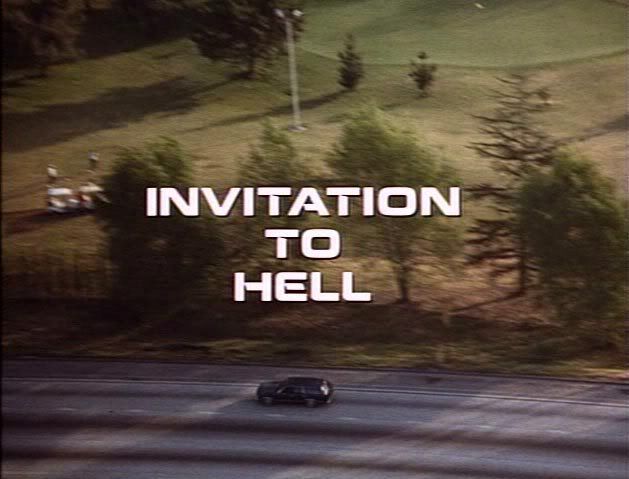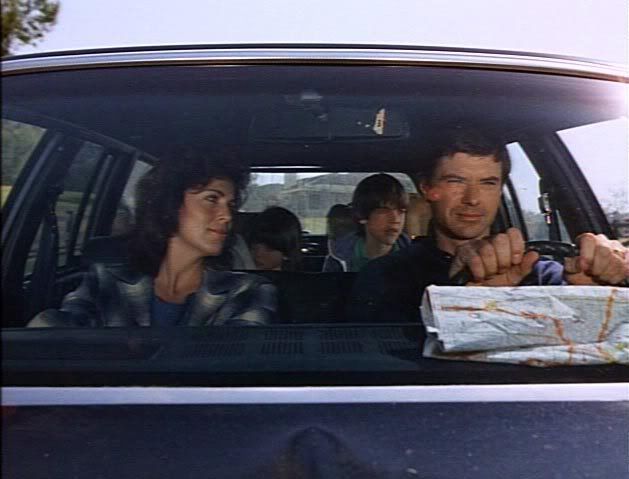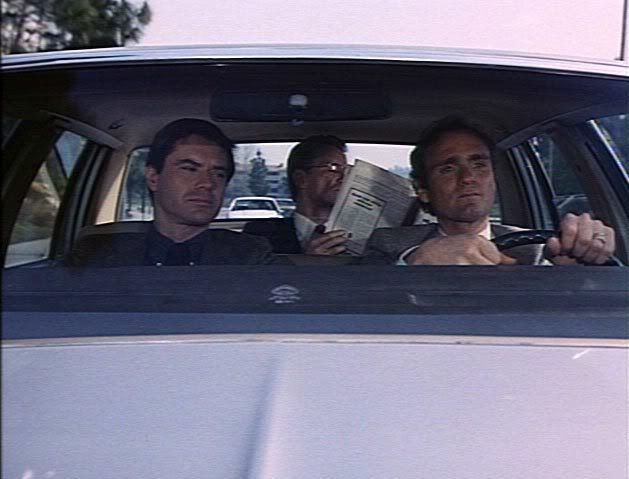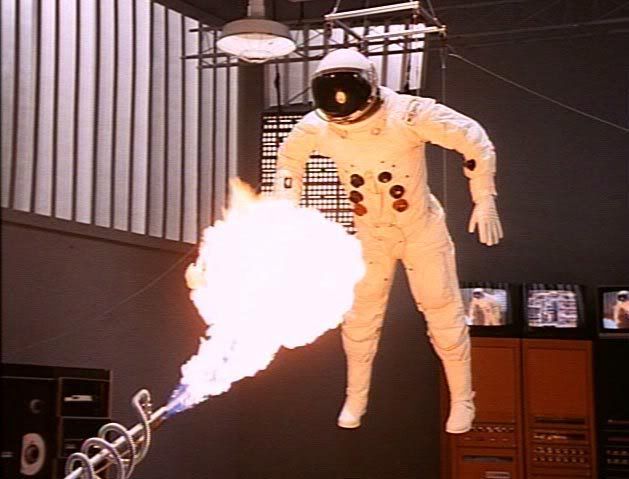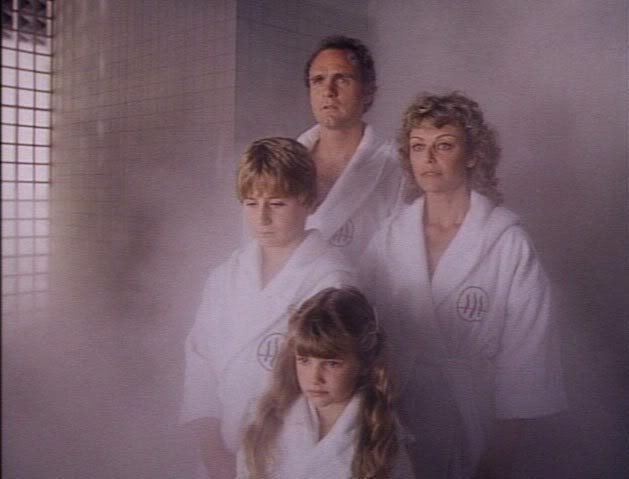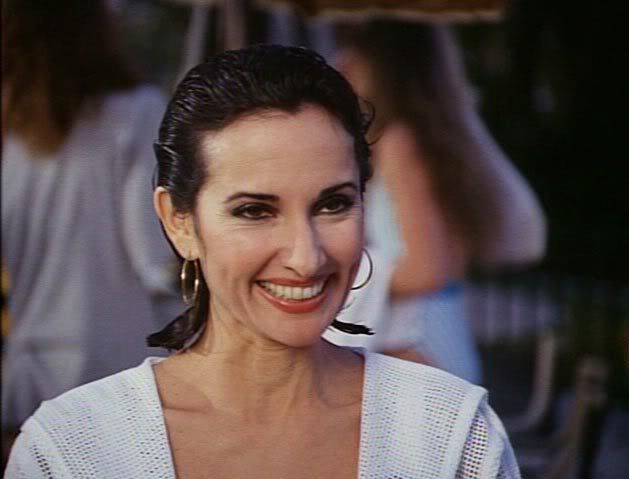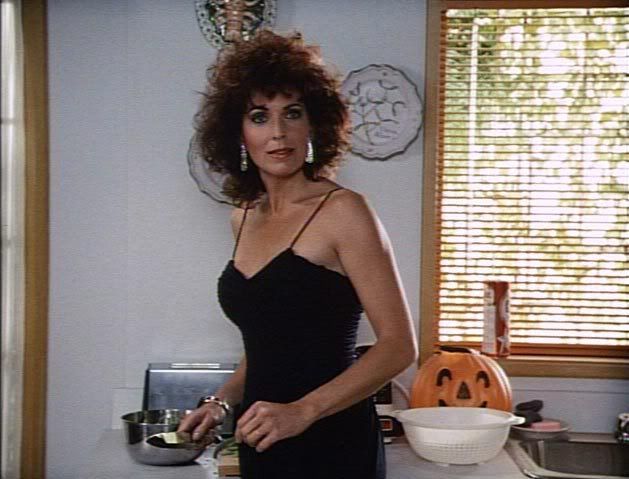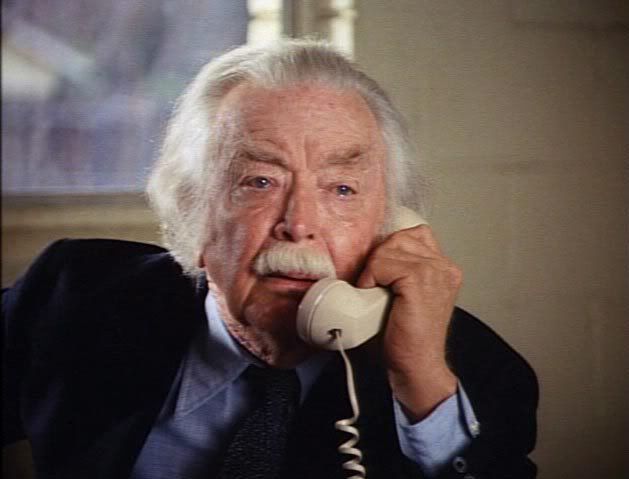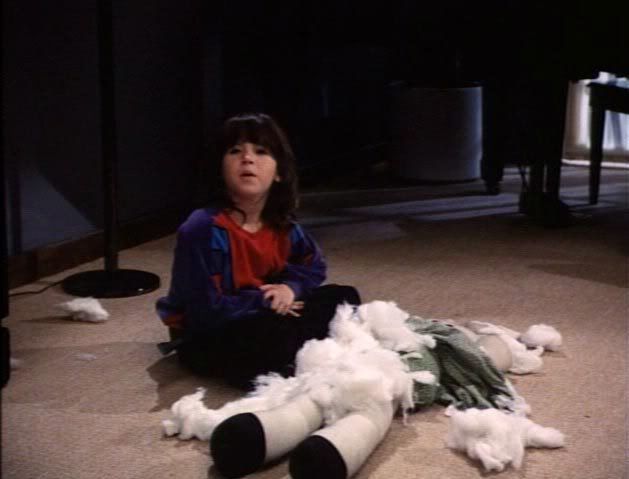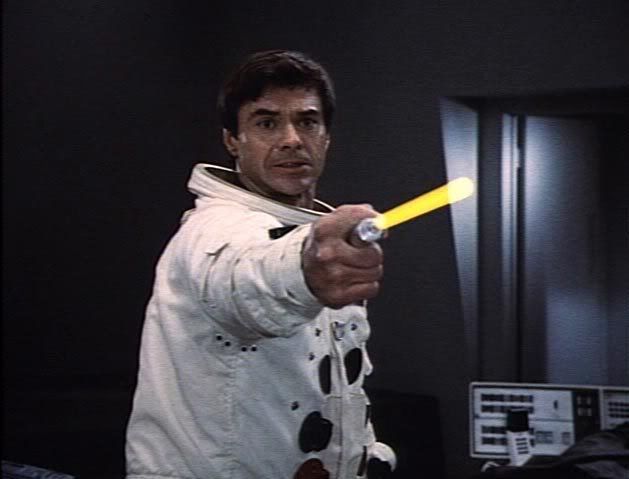December belongs to Jesus.

Everyone knows that.
It’s the month where everyone celebrates his and Santa’s birthday by cutting down trees and drinking foul concoctions of milk, spices and rum while exchanging gift certificates from Home Depot.
But this is not December.
This is October….
And we all know what October is about.

It’s the month where cable networks host horror movie marathons, department stores fill up with strange costumes that inspire either fear or lust and little children do the one thing they are forbidden to do any other time of the year—ask for and accept candy from a stranger.
Yes, October is The Devil’s month and in his honor I have decided to write about my 10 favourite cinematic depictions of Hell’s Master and God’s greatest disappointment.
And today I have decided to start off with a look at a TV movie that combines the efforts of two very different legends.
I am, of course, referring to:
In 1978 Wes Craven made his first contribution to the strange, often-dubious tradition of the TV Movie of the Week. Stranger in Our House (released theatrically overseas as Summer of Fear) had been a ratings hit, but had done little to remove the stigma associated with his name thanks to the infamy of Last House on the Left and The Hills Have Eyes, so six years passed before he got the opportunity to revisit the medium. During that time he had directed two failed features and was in the financial position of having to accept any job someone was willing to offer him, as he worked on the screenplay for a pet project about a killer who murders people in their dreams.
It should then come as no surprise that of the two films he made in 1984, the one he was passionate about became a horror movie classic and the one he made purely for the cash…well…didn’t.
Invitation to Hell is a film that reeks of directorial indifference, but it would be a mistake to dismiss it merely as another wretched example of Craven’s hackish misfires (as opposed to his auteurist successes). Not so much because it was able to transcend his apathy and achieve its own level of modest quality, but more because it’s just so gosh-darned goofy you’d kinda have to be an asshole to hate it.
The film stars the late Robert Urich as a brilliant computer scientist who has been lured by an old college friend (Murphy Brown’s Joe Regalbuto) to a small town that’s home to a tech company responsible for creating a new heat-resistant spacesuit for a potential NASA visit to Venus. Thrilled to finally be able to provide his loved ones with the luxury of suburban safety that was the dream of all of Reagan era breadwinners, Urich’s enthusiasm for his new home dampens when he discovers that the zeal his coworkers and neighbors show for the local country club and Jessica Jones, the beautiful woman who runs it, borders on the wrong side of brainwashed cultism. Against his wishes his wife (Blade Runner’s Joanna Cassidy) joins the club with their two children (Barrett Neverending Story Oliver and a pre-Punky Brewster Soleil Moon Frye) and immediately the three of them start acting strangely. It then takes Urich the rest of the film to figure out what we learned in the very first scene—Jessica Jones isn’t human!
And by, “isn’t human,"
I naturally mean,
“is Susan Lucci!”
Back when Hollywood decided to take a stab at turning John Updike’s The Witches of Eastwick into a film, most people agreed that the casting of Jack Nicholson as The Devil was bit too on the nose. If it was possible for an actor to be typecast as Satan, then that surely had to be the best example of it.
Except it wasn’t.
I would argue that the casting of Lucci as Hell’s infernal ruler marks the most perfect combination of performer and role in the history of the character.
Why?
Well, I could be glib and suggest that any woman in her 60s who remains as—if you forgive the crude vulgarism—“doable” as she was 24 years earlier must in some way be related to Lucifer (or—at the very least—has a good relationship with both his chief plastic surgeon and most onerous pilates instructor), but by that standard I would have to equally damn Helen Mirren, who merely has a body made by Satan, not one inhabited by him*.
I could also argue that her behind the scenes reputation as a diva of the first order (read: psychotic bitch) works in lockstep with most people’s image of a vain fallen angel who could not stand to bask in the glow of anyone else’s brightness, but I only have the unfair foundation of rumor and innuendo to back up this argument, despite the clear indication that anyone who can lose the same Daytime Emmy award 19 times IN A ROW has obviously alienated A LOT of people in their time in the business.
No, Lucci’s seamless fit into the role is the result of that interesting coldness in her gaze—the one that remains even as her radiant smile dazzles the eye with its combination of ruby red lips and brilliant white teeth. In her icy stare one can see a mixture of desire and calculation—the desire coming from her desperate need for your acceptance and devotion and the calculation the result of her constant scheming of ways to get it. When Susan Lucci looks at someone you can see that she wants to possess their soul and is at that moment determining exactly what she has to do to obtain that for which she yearns.
Pray she doesn’t turn that gaze towards you!
Anyhooooo, back in the movie, Urich concludes that the only way to save his family (which he wants to do even though his wife is WAY hotter as an evil demon than she ever was as a normal housewife) is to don the special spacesuit he’s been working on and literally walk through the (password protected) gate to Hell found in the club’s basement.
More than anything it’s this conceit (and the necessary foreshadowing required to make it happen) that redeems what is otherwise a fairly staid and pedestrian production. The sight of Urich in the suit shooting out (useless) flames and (more useful) laser beams as he makes his way into a very low-rent version of Hades is pure kitsch paradise, as is the film’s climax in which—as one would hope—the pure holy power of love proves to be the key in breaking The Devil’s demonic spell.
*But it did just occur to me that had Craven and company decided to cast Morgan Fairchild as Jessica, I could still use this exact same post with only a minimal amount of editing.
Next Up
The Devil in Paradise
